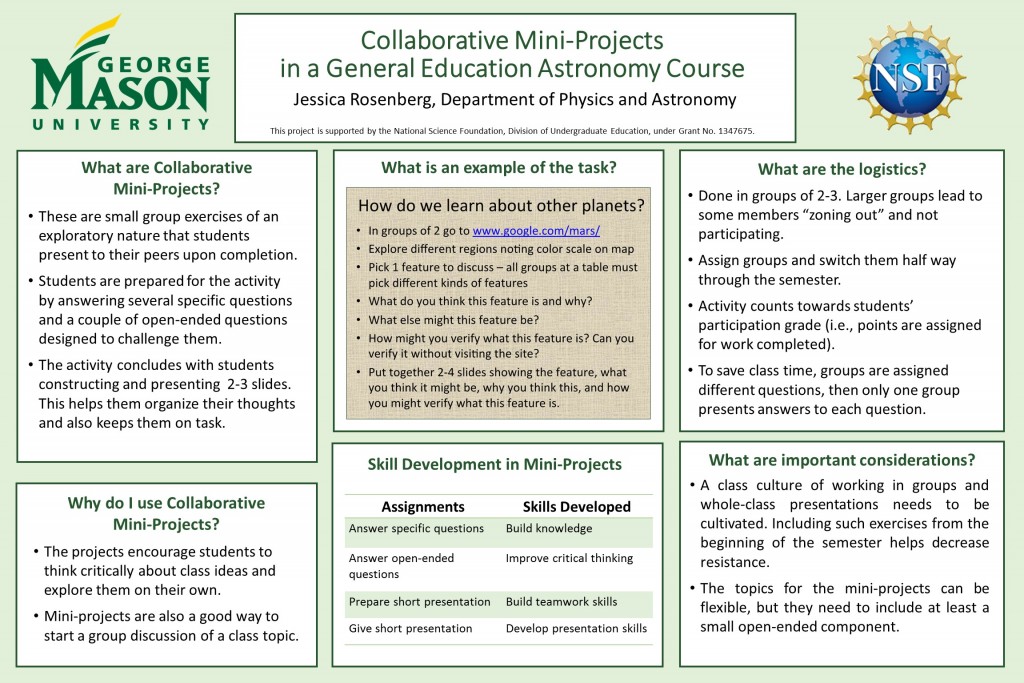Tag Archives: projects
Mini-Projects
Mini collaborative projects with presentations:
These are exercises done in groups of 2-4 that have to be presented to the class at the end of the given time. The goal is to get the students thinking about the class ideas and exploring on their own. The need to put together a couple of slides to present to the class helps them to organize their thoughts and to keep them on task. An example is given below.
Research immersion through ‘Elevator Speech’ role play
What is the strategy?
Undergraduate students in a mid- or upper-level biology course are tasked with identifying a research laboratory in the United States that has an active, federally funded research project using the NSF Award search website. Once they identify a laboratory with a funded project, the student must conduct research to understand the proposed research well-enough to present an elevator speech as though they are an undergraduate researcher in the lab. Elevator speeches have received considerable attention lately, with several scientific organizations (e.g., ASCB) providing international competitions for ‘best elevator speech’. Variants on the ‘Elevator Speech’ include the Three Minute Thesis (3MT), which seeks to encourage graduate and undergraduate researchers to distill their thesis or dissertation projects into an approachable, short format talk for a broad, non-scientific audience. George Mason University has recently begun participating the Science Slam event, which although is not short-format, is a competition to present research in an interesting way to a non-scientifically trained public.
Use of the Shark Tank model to solve a current conservation issue
What is the strategy?
The strategy is to use the model of the television show ‘Shark Tank’ as a way to illustrate a solution to a current conservation issue. The ‘Shark Tank’ model is one where entrepreneurs have three minutes to pitch an idea to millionaires who have available start-up capital. I used this as an exercise in a Conservation Biology classroom in the Spring of 2015. Critical thinking and creativity are emphasized in this strategy. Students are required to research an issue, devise a possible solution (or use a solution to fundraise), determine project costs, develop a project timeline, create a sample press kit, and present the idea to the class. The class are the millionaires with the $100,000,000 venture capital to enable the project. After all presentations, classmates vote on the project they wish to fund. The project that ‘wins’ receives two extra points toward the final grade.
